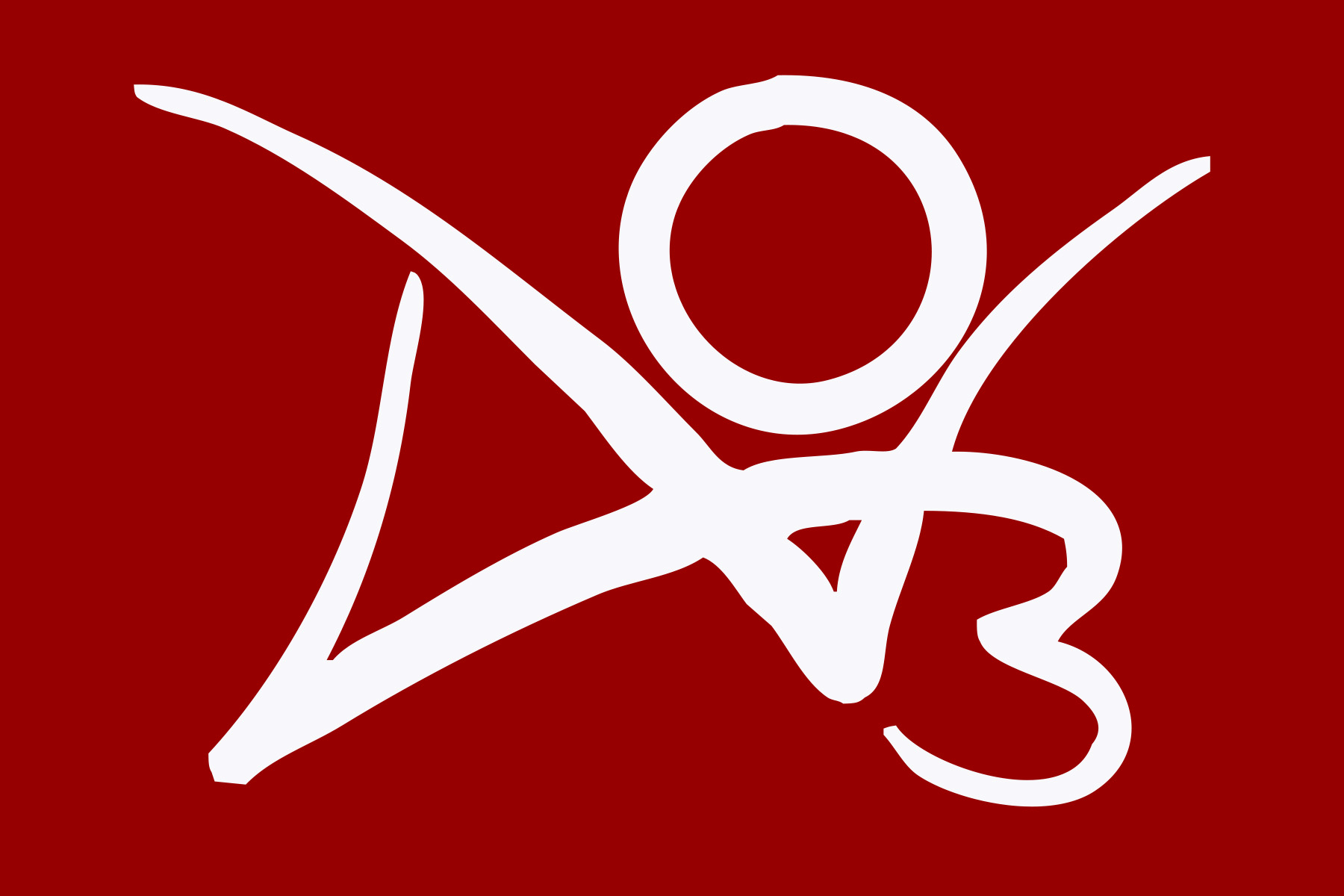For a website that generates incredible traffic (over 7 million fanworks posted on the site, 3 million registered users and an average of 50 million views a day), and has been ranked the No. 1 literary website by Similarweb, it’s nothing short of a wonder that this site not only provides entertainment that is completely free to access, but is ad-free, a nonprofit and a fan fiction platform to boot.
For those who may be unfamiliar with the website, Archive of Our Own — more commonly shorthanded as “AO3” — is a tremendously popular fan fiction platform that has outpaced its predecessors, FanFiction.net and LiveJournal, in both fan appeal and platform.
Namely, it’s created by and for the fans: The website is backed by the fandom nonprofit Organization for Transformative Works (OTW for short) and run by a veritable army of volunteer coders, moderators, scholars and a legal advocacy team. The website is dedicated to protecting fanwork (stories, art, podcasts and other creative work), as evidenced by AO3’s terms of service. It’s a haven for the fandom community, for those who have faced stigmatization, censorship, legal troubles and erasure of their work from hosting sites and authorial wrath for decades.
It’s completely ad-free and paywall-free and doesn’t have a single whiff of the stench of capitalism when you compare it to other digital content platforms like Facebook or YouTube (even Reddit, our other bulwark of grassroots community, was bought out by Conde Nast early in 2006). AO3 runs completely on donations from members, and all of those donations are made visible in incredibly transparent financial reports, which is more than most nonprofits can say. It’s even more impressive when you consider how much the Archive’s servers must cost, to host the millions of daily visitors and the thousands of stories that get posted each day.
AO3 rapidly outpaces any social media site or blog platform, in terms of both user-friendliness and structure. AO3 has a distinctive, innovative “tagging” system, where users uploading fan fiction are able to describe their work with common tags like “Fluff” and “Time-Travel,” or warn readers of upsetting themes with tags like “Major Character Death” or “Non-Consensual.” According to AO3, the official tagging system uses a “curated folksonomy,” or a “free-for-all tagging system supervised to some degree by a band of merry curators.”
This means that writers can add their own unique tags to describe their work, creating pseudo author notes with tags like “author is sleep-deprived,” “no one dies because i said so,” “i woke up and chose pain,” and my personal nonsensical favorite, “there’s a cow here.” There are even multiple Twitter accounts that detail interesting tags users encounter, from “the inherent horror of scottish five year olds” to “outrageously evil bongs.”
There’s a story in every tag, even before you get to the fan fiction itself.
This innovative cataloging, plus the built-in, required content warnings, helps readers both find and avoid content according to their tastes. It’s an indexing dream for archivists and library scholars, and one that many industries can stand to learn from as well, as internet linguist Gretchen McCulloch pointed out in a Twitter thread.
Finally, there’s a certain trust and quality in AO3 that encourages fans to leave the lackadaisical likes of LiveJournal and the capitalistic clutches of Wattpad (owned by Naver, a Korean company and parent company of Webtoon) to swarm to the Archive in droves. There’s the trust that the site will protect their content and will have the general fandom’s best interests at heart when it comes to decisions about design, policy and funding. Compare that now to the increasingly invasive way that big media uses our personal information for corporate interests — AO3 is a breath of fresh air. For AO3’s founders and developers, made up mostly of women and minorities, their work on the platform sits in stark contrast to much of open-source culture and Silicon Valley tech hype, known to be particularly toxic to women.
Oh, and AO3 also won a Hugo Award in 2019. It’s only widely considered the premier award in science fiction. No biggie.
So, it won’t be a surprise to anyone that’s ever been on the internet for at least 10 minutes that there’s always someone who comes along to make sure we can’t have nice things.
Recently, a controversy involving a million-plus-word story has thrown AO3’s laissez-faire approach to moderation into question. The fan fiction in question, “Sexy times with Wangxian” (STWW), became notorious for the large number of descriptive tags on the work, eventually reaching over 4000 before the majority of its tags were removed by Archive’s moderators. The problem with the piece was how it was displayed. All tags appear under the title of the work listed in the search pages, even before you get to the description or click on the work. Although Archive of Our Own restricts tag length to 100 characters, there’s no apparent limit on the number of tags allowed.
As a result, there was a monstrosity of a wall of text (one Twitter user filmed scrolling past it on a 27” monitor) that dominated the search results and tag pages, making it difficult for fans to browse the website or even pass the story as they scrolled. And because the work regularly updated its chapters (the current count is at 304), it would reappear at the top of the search results every so often. Fans who used screen readers reported that the number of tags on the STWW made the site unusable for them, although AO3 support dismissed the issue, citing that pages were structured to allow screen readers to skip the text block. There were also workarounds to the problem, including excluding the work from search results by word count (ie: <1 million words), or excluding specific tags or fandoms that STWW included.
The problem with STWW that made it the community’s problem rather than a singular fandom’s was that because AO3’s tagging system is cross-cutting across the site and the tags extended to multiple fandom categories and topics, STWW has created a massive visual and infrastructural disruption for many users across the platform. The problem reignited calls for closer moderation of the works posted on the site, especially those with toxic or problematic elements.
In the past, these issues have been met with rejections from AO3, whose rules are based on the idea of a “maximum inclusiveness” that will bring the most benefit to the community, rather than promote restriction and censure. The Archive already has “archive warnings” in place for topics like nonconsensual or racist content that can be avoided through its tagging system and its display on the fanwork. Furthermore, when you agree to use Archive of Our Own, you agree that “the OTW is not liable to you for any Content to which you are exposed or because of the Service.”
There is a silver lining to this dam: As a result of the deluge of reports on STWW, it rekindled the issue of blocking that stemmed from AO3’s earlier 2020 discussions of racism and community moderation, an issue at odds with AO3’s founding stance of total permissiveness. During these discussions, AO3 users requested that the site add features that could help users avoid engaging with works or authors that they found toxic or harmful, such as encountering fanworks not intentionally racist and thus missing the tag for racism. One such request was for a function to block or hide individual users and their works in the “filtered search.” Now, thanks to “Sexy times with Wangxian,” users are able to exclude specific authors and specific work IDs from search results, although it still isn’t a perfect system.
An earlier controversy involved the banning of Archive of Our Own from China and actor and idol Xiao Zhan (who starred in “The Untamed,” a hugely popular web series adapted from a queer romance novel). For many users, AO3 was one of the few remaining online safe spaces for Chinese netizens to explore their gender identities and sexualities, given the lack of acceptance on both physical and digital spaces for those who don’t quite fit Chinese cultural expectations (which, FYI, has a frosty reception to queer and gender nonconforming individuals).
Many laid the blame for AO3’s ban at the feet of Xiao’s fans. The actor’s fans, unhappy about the fan fiction that portrayed their idol as a sex worker with gender dysphoria, claimed that it “tainted Xiao’s image.” The fans reported the creator and the fan fiction series to the Cyberspace Administration of China for “prostitution and pornographic content.”
However, it’s unclear what exact event caused it to be blocked, whether it was simply new internet regulations on the Great Firewall due to come in or as a result of the ongoing internet fight between shippers and idol fans on Weibo, culminating in an alleged mass-reporting of AO3 to the Chinese government. Most likely, the censorship resulted from the widespread and high concentration of LGBTQ+ content, smut and other content on AO3 that goes against the Chinese government’s cultural regulations.
Despite these controversies over free speech and censorship, it’s clearer than ever that AO3 remains a place where people feel free and comfortable to express their love for creating and reading fan fiction. Thanks to the pandemic, people are reading more fan fiction than ever, and now have a safe space to do so.
And it is doubly important to remember that the AO3 and the OTW were created in response to the broader stigmatization and dismissal of fan fiction as “real” works. Even today, there are still shaming and openly sexist stereotypes about fan fiction, about it being the puerile work of shrill teen girls and/or supporting unrealistic, absurd fantasies.
But these stereotypes hide the fact that fandom and fan fiction is an intensely creative space that gives a voice to misfits and marginalized members of society. It’s not just romance and “50 Shades” type work that defines fan fiction — in fact, some of the most popular tags on AO3 are “Alternate Universe,” “Time Travel” and “Friendship,” and the largest fandoms on the site are Marvel, “Star Wars,” “Harry Potter” and “Supernatural.” There are fan-created works that explore political intrigue, world-building, morality and empowerment that rival even the best-published literature.
AO3, by creating a space designed to protect fanworks and subsequently making it one of the most popular sites on the internet, sends a public message to the world that their work has always been legitimate and is not something to be ashamed of. And with the majority of fan fiction writers being women and queer folks, fan fiction is a place that, unlike Hollywood or major media, allows them to create and be represented in stories. Archive of Our Own is a space for anyone and everyone to share their talent, find a community, explore their technological or creative skills and build a world that is truly their own.

















